
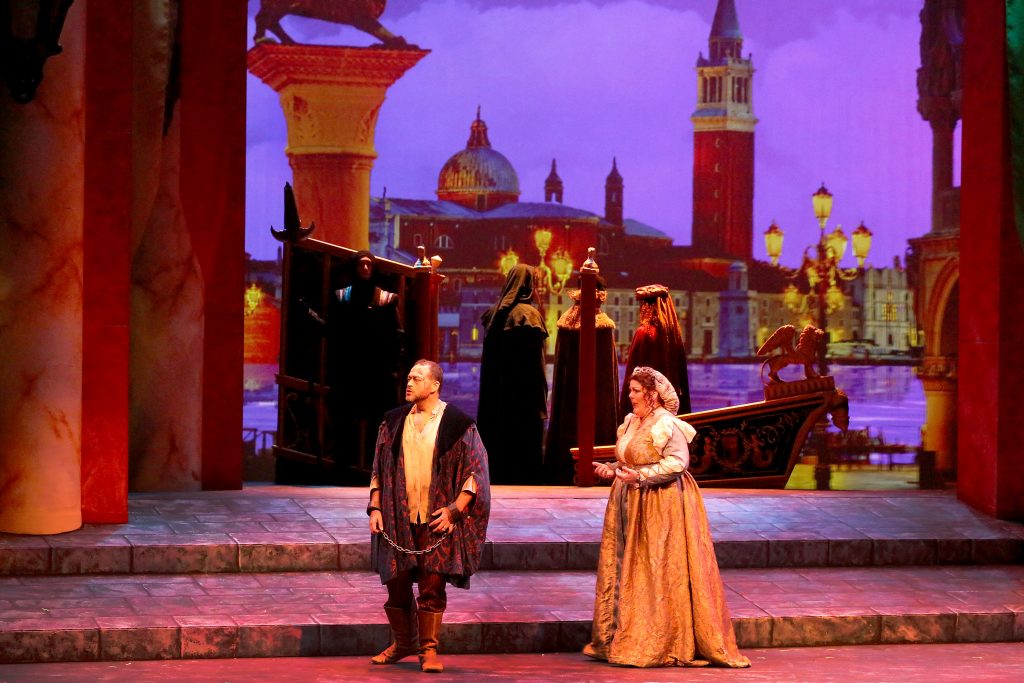
I feel very fortunate that my annual visit to California coincides with the West Bay Opera’s winter production. This is the company’s sixty-third season, a remarkable achievement, bringing high quality performances to a welcoming audience at Lucie Stern Theatre, Palo Alto, an inviting and not overwhelming venue. Jose Luis Moscovich, General Director, always opens the performances with insights about the opera that awaits the audience and he never fails to ask newcomers to this opera company and to opera itself, to raise their hands. At this time there was also an announcement that the next season will be all Verdi.
The current production,“I Due Fascari”, which opened on February 15th, (with performances on February 17th, 23rd and 24th), is an early Giuseppe Verdi Opera, and knowing little about this opera, I was very interested in seeing it. The first night had its ups and downs but mostly ups. Gorgeous music, exquisite voices, sets with realistic projections, impressive costumes, a wonderful orchestra, chorus and dancers more than overcame a few first night bugs and a story that was a bit weak.
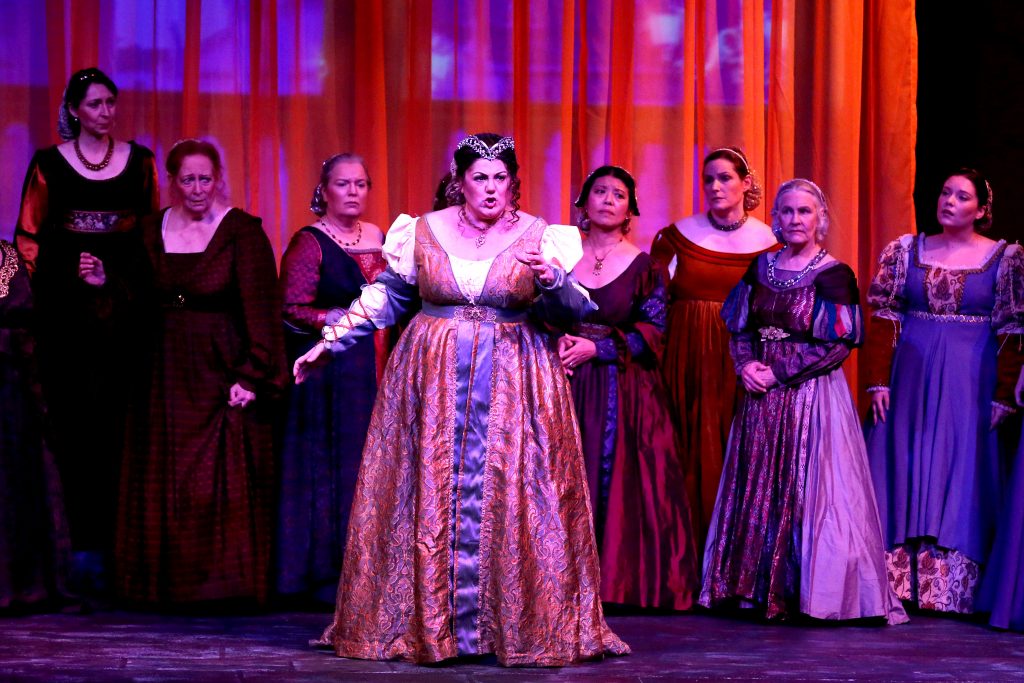
The story? “The Two Foscari” is the story of three tragic people, Francesco Foscari, the Doge of Venice, his son, Jacopo, wrongly sentenced to exile, and Jacopo’s wife, Lucrezia. This is West Bay Opera’s first production of “I due Foscari” that is based on Lord Byron’s historical play of the same name. Foscari’s 34-year rule ended in tragically in 1457. Not being able to prevent the sentencing of his son brings out the conflict between Foscari’s duty as a ruler and needing to follow the law, and his role as a father of a son he loved. Once Jacopo leaves for his exile, he dies and soon after Foscari is forced to abdicate his rule, and also dies of a broken heart, leaving an abandoned Lucrezia. “I due Foscari” was given its Rome premiere performance on 3 November 1844. It has been performed infrequently in either the full out version or in the orchestral version in various parts of the world.
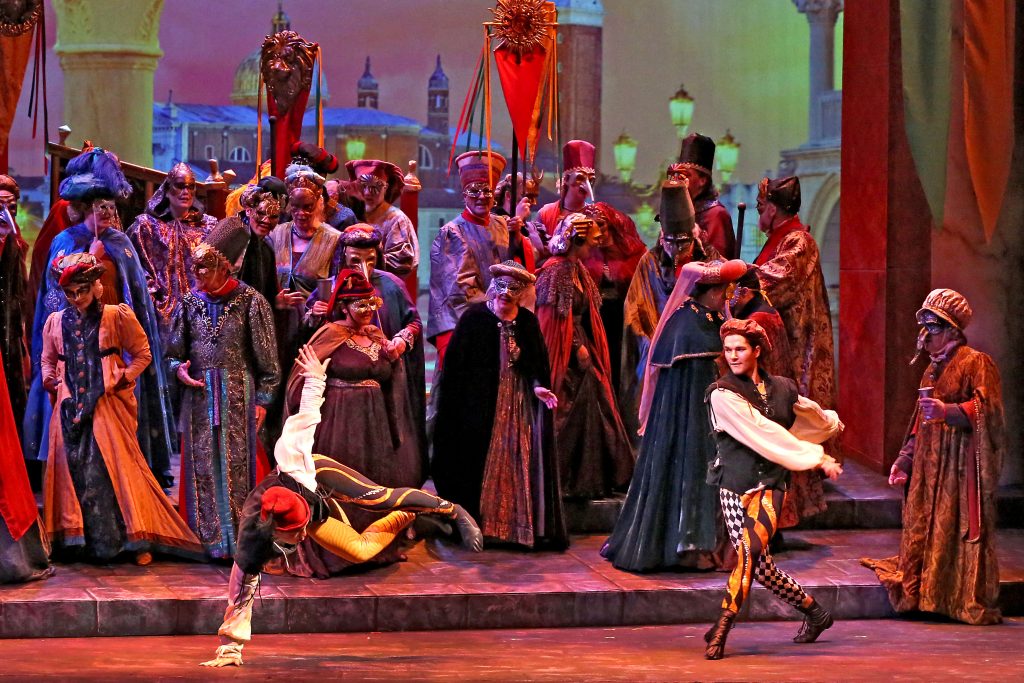
A Wikipedia snippet indicates that Verdi might have agreed with my companion and me about the story line. “This gave Verdi the opportunity to re-read Byron’s play and, in doing so, he came to the realization (which he expressed in a letter to Piave) that the librettist had better NOT ‘stick close to Byron’: “…the play does not quite have the theatrical grandeur needed for an opera; so rack your brains and try to find something which will make a bit of a splash particularly in the first act” and he continues by stressing that “it’s a fine subject, delicate and full of pathos”.”[3] Thus, the rather lower key of the original piece stood out in direct contrast to the opera by which it was succeeded”
And later, “In April 1845, in connection with I due Foscari, he wrote: “I am happy, no matter what reception it gets, and I am utterly indifferent to everything. I cannot wait for these next three years to pass. I have to write six operas, then addio to everything.”[
Come to see the unabridged, fully staged production in the splendor of early renaissance Venice and enjoy the beautiful aria, ensemble, choral music and dancing, and mostly the virtuosic singing and orchestral playing.
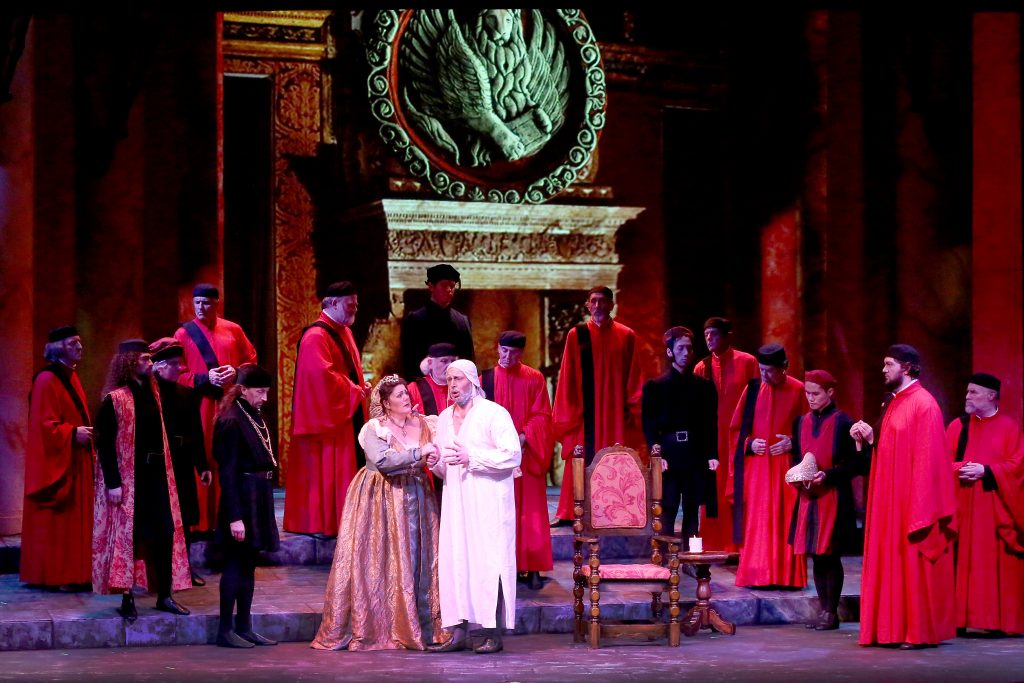
This is what awaits you:
The Creative team that makes everything you don’t always see, happen.
José Lis Moscovich, Conductor; Richard Harrell, Stage Director; Peter Crompton, Set Designer; Callie Floor, Costume Designer; Steve Mannshardt, Lighting Designer; Lisa Cross, Makeup and Wig Designer; Shirley Benson, Props Designer, and Giselle Lee, Sound Designer.
Along with a large cast that included a chorus and two dancers, the singers were:
Jason Dulka as Francesco Foscari, who won the hearts of the audience, Christina Major as Lucrezia Contarini, reaching notes that seemed unreachable, Nathan Granner as Jacop Foascari, with a voice that was simply exquisite, Ben Brady as the Loredano you would expect, Carmello Tringali as both Barbarigo and Fante, Katia Hayati as Pisana, and John Paul Kiledcdi-Li as the Doge’s Servant.
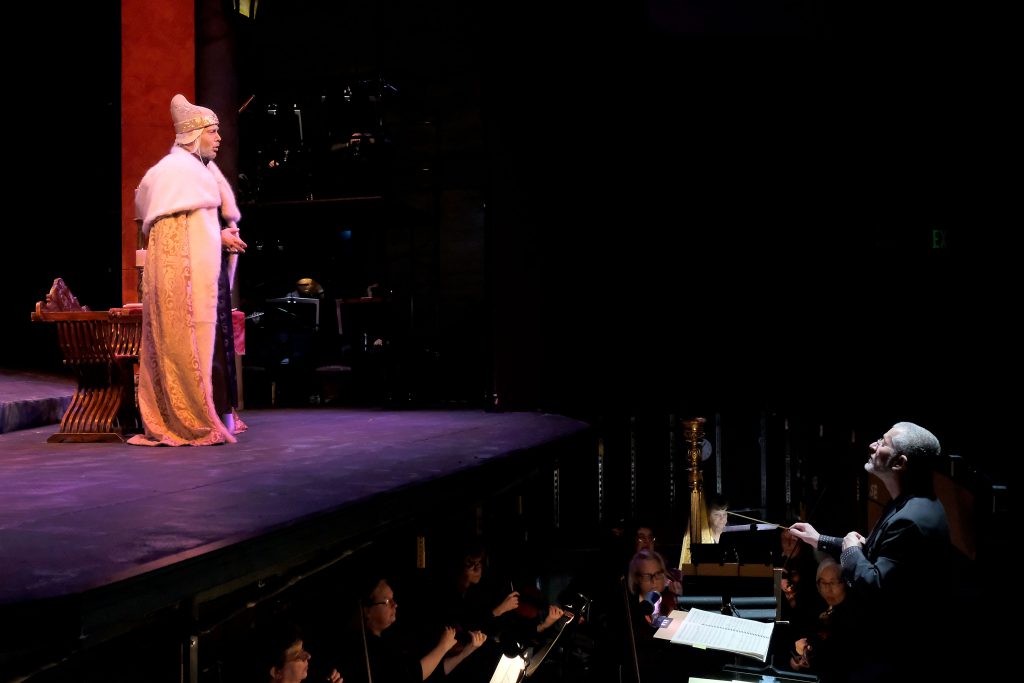
You still have three opportunities to see this opera. Don’t miss it.
Photos by Otak Jump
For addition information,
About I due Foscari
About Giuseppe Verdi’s first operas
About West Bay Opera




Be the first to comment